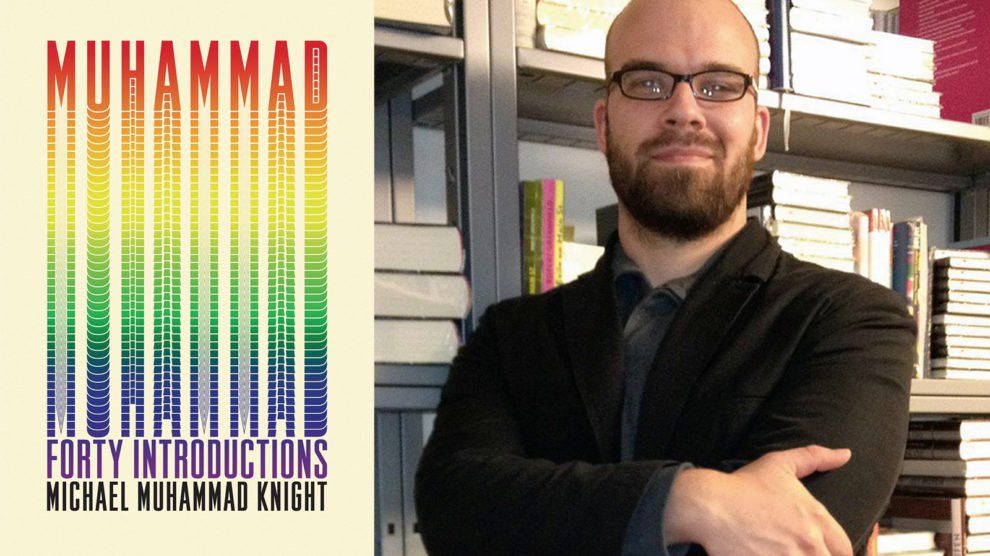
In this interview, Michael Muhammad Knight talks about his new book entitled Muhammad: 40 Introduction, giving what Religion News Service calls “a crash course in the multiplicity of ways Muslims have historically imagined and remembered the Prophet Muhammad through 40 hadith.” (Hadith, per RNS, are the reported sayings of the prophet from many different sources that Muslims look to for guidance in living their faith).
Here are some snippets from the interview:
— How did you choose what hadith to include?
There were some themes that I knew I had to talk about to use this project as a tool in the classroom (Knight is an assistant professor of religious studies at the University of Central Florida). I needed to, for example, explore the prophet’s experience of revelation, the prophet’s marital life, the prophet as a legal authority. Then there were hadith that provoke conversations. There were hadith that were denounced as inauthentic, which still represent something in this tradition, that speak from the margins of the tradition, and can sometimes be fruitfully engaged and seriously considered. These hadith speak to the full range and complexity of the tradition.
— What gaps in popular understandings about the prophet were you seeking to fill in?
The mystical Muhammad gets erased. In modern conversations we’re looking for an Islamic model of economics and government. We’re asking how the prophet teaches us about gender and ethics. These are secular, worldly concerns — and I don’t take away from any of that. But there’s also a mystical, almost shamanic sort of Muhammad that spooks a lot of people out. Incidents like the experience of the prophet’s ascension to heaven either don’t appear in a lot of modern biographies, or they just get washed away or skimmed over. In a lot of premodern contexts, though, this mystical experience was essential to understanding Muhammad.
— As a new father, is there a certain hadith that you find inspiring?
There are plenty of hadith about the prophet’s tenderness with kids, particularly the way he would let his grandchildren play on him as he prayed. There’s the story in which his son died as a baby, and we see the prophet’s tenderness as he cries. For a lot of people, Islam means complete surrender to divine will. It might be confusing, then, to see someone who is so perfect in their surrender weeping as though they are struggling with what was written for them. And the prophet addressed those concerns, explaining that he was given this compassion and love and mercy.



